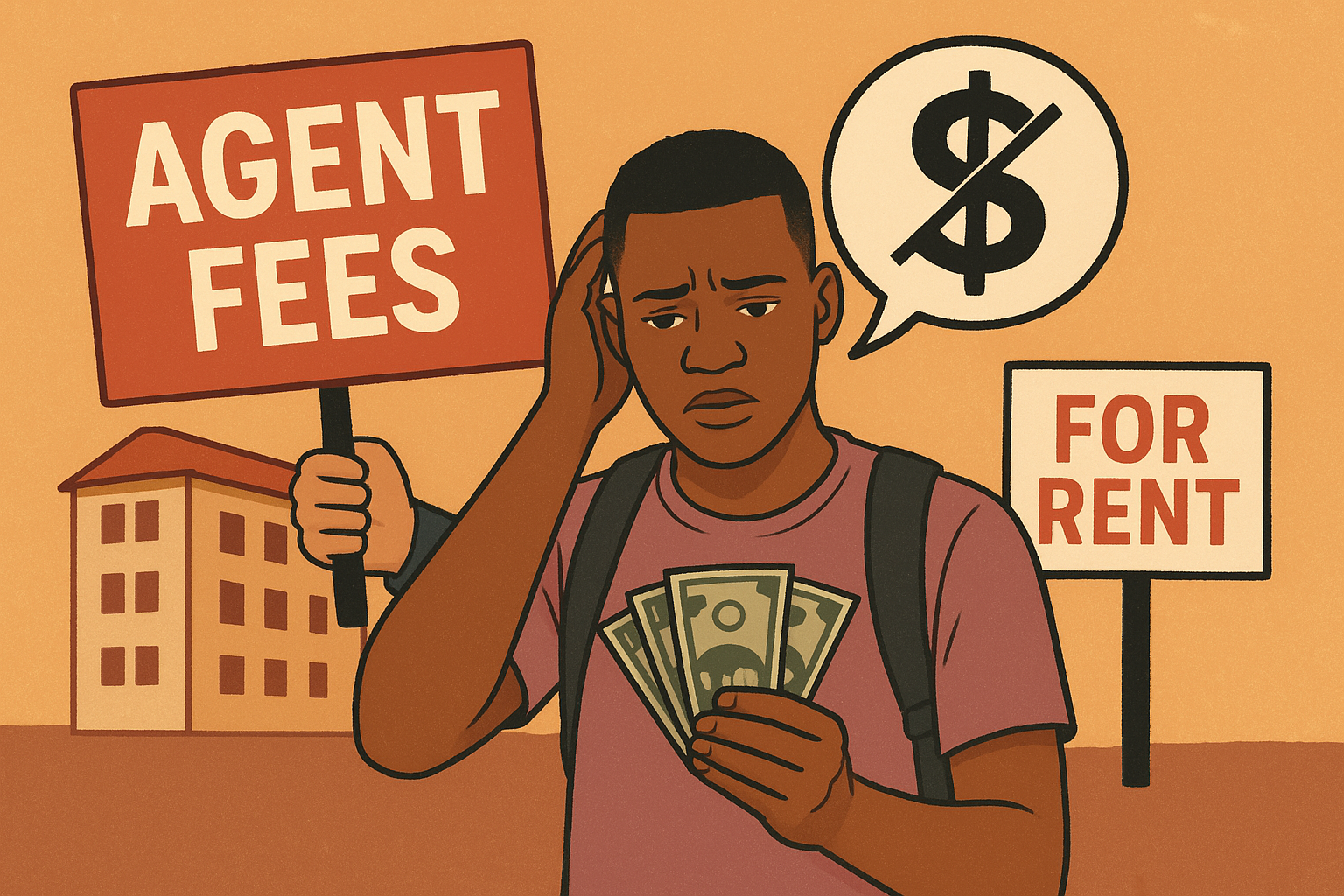
But everywhere she turned, the houses she came across were above her budget. She could afford the rent for some houses she found, but they were either too far from her place of work or the “total package” made them out of reach.
Three years later, Florence has had to save up three different times just to afford an apartment of her choice.
“When I first got to Lagos, I thought I’d get somewhere in a matter of 1-3 months, but soon realized that getting an apartment in Lagos, as an average working-class individual, comes with a whole lot of strategic planning.
“One, you need to have the complete money available, and you will need to save, especially if you’d be spending more than four months of your monthly salary on the rent. It’s one thing to save and another to find somewhere perfect, or at least that fits your budget,” she explained.
The hidden cost of house-hunting in Lagos
In Lagos, it is nearly impossible to secure a rented apartment without getting in contact with a property agent. These agents act as intermediaries between landlords and prospective tenants, helping people find available apartments, negotiate rents, and arrange inspections.
The 2011 Lagos Tenancy Law defines an agent as “any person usually employed by the landlord in the letting or leasing of the premises or in the collecting of the rents, or a person specially authorized to act in a particular manner by writing under the hand of the landlord.”
They typically have insider knowledge of the rental market, maintain lists of vacant properties, and connect clients to landlords for a fee, often charging a commission or agency fee for their services. Because most landlords rely on agents to advertise and manage their properties, tenants are almost always compelled to work through them, making agents an unavoidable part of the housing process in Lagos.
In her three years of house-hunting in Lagos, Florence has had to contact no less than ten housing agents. Their services never come free.
To help house hunters secure apartments, most Lagos agents first require them to pay for a form. The Guardian gathered that the prices of this form range from N3,000 to N10,000. After filling out the form, the next step is inspection. On every trip to apartments available for rent, house seekers have to foot their transport fare and that of the agents.
A public servant in his early thirties who was recently transferred to Lagos from Port Harcourt in August, Bwefa Musa, was shocked when he discovered how house agents operate in Lagos.
“The whole thing is messed up. They extort people in the name of looking for a house. It is unbearable. How can someone leave his town because of a job and you will be stressing him while searching for a house?” Musa lamented.
After seeing a choice apartment, home seekers are still expected to pay separate fees to the agents. They refer to these additional charges and the rent as the “total package.”
Some of these fees include agent and commission, agreement, legal fees, and caution fees. The Guardian saw a house listing recently for a self-contained room, which costs N750,000; the agent charged N200,000 for agreement, N200,000 for commission, N100,000 for caution, and N100,000 for service charge, bringing the total package to N1,350,000.
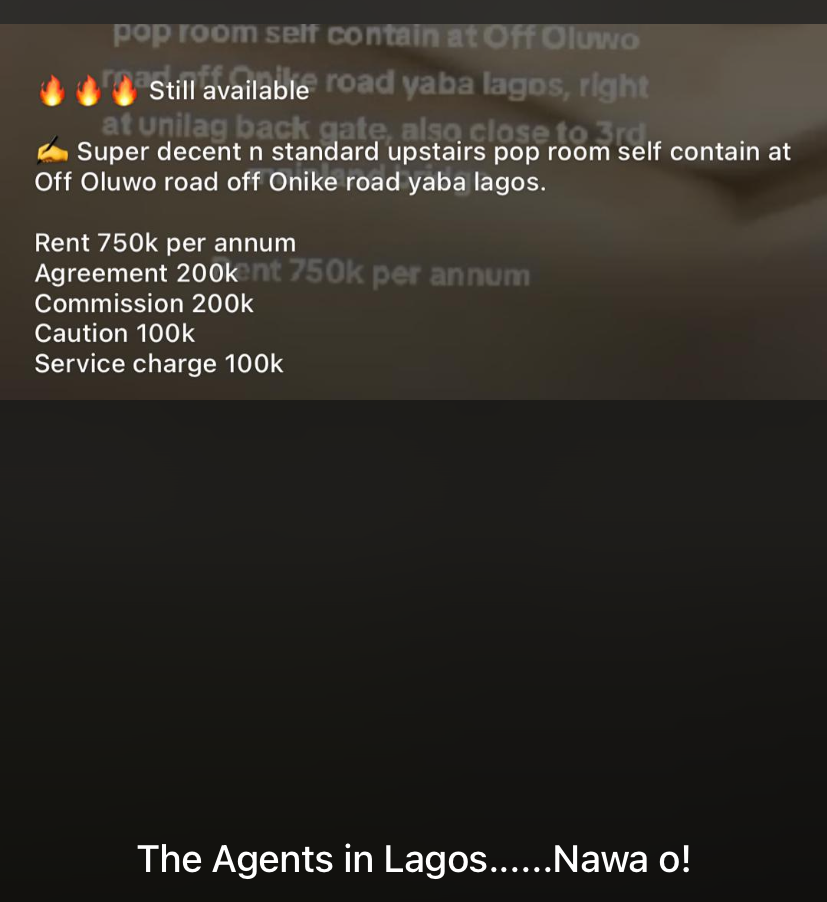
It costs more to rent an apartment in Lagos than in other states in the country. Some residents have to save up their four months’ salary or even more to be able to afford rent.
The gap between earnings and housing costs is wide in Lagos, especially for young people starting out in their careers. Recent labor market data puts the average monthly salary in Lagos at about ₦175,000, which is roughly ₦2.1 million a year. But many entry-level workers earn far less, with surveys showing that a significant share of early-career employees take home as little as ₦60,000 a month.
By contrast, annual rents for a modest two-bedroom apartment crange from N1.5 million to ₦2 million in middle-income neighborhoods, while prime areas like Ikoyi, Victoria Island, and Lekki demand ₦3 million to over ₦5 million per year.
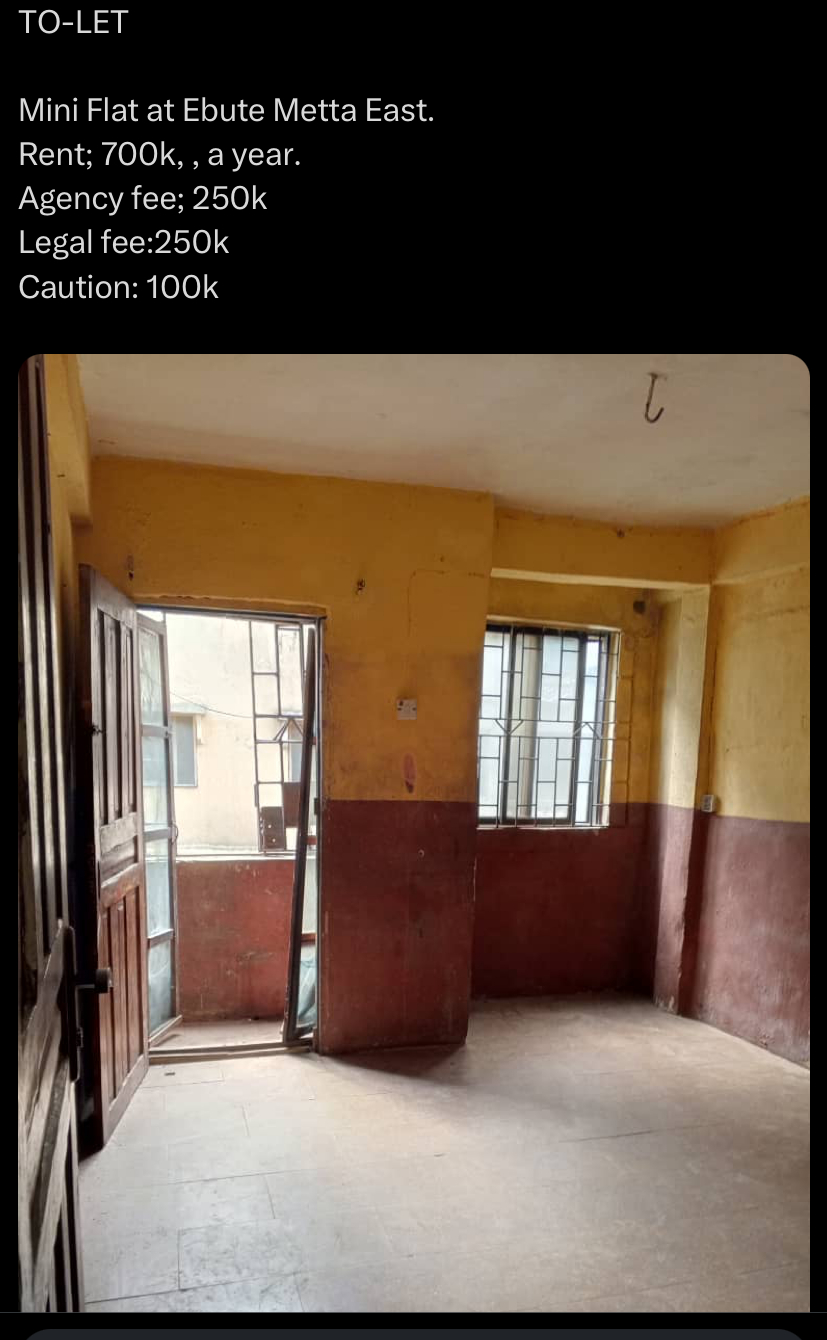
Even outside the city’s highbrow neighborhoods, some landlords insist on one or two years’ rent upfront, alongside agency and agreement fees from agents, pushing the initial cost of moving into an apartment far beyond what an average young worker can reasonably save or conveniently afford.
In September 2024, Adeniran Abdbasit Adeyemi, a poet, was on a search for a house after his landlord increased his rent. Every house agent he came across hiked the rent.
“My experiences with house-hunting were both exhausting and frustrating. It feels as if Lagos agents are inflating rental prices under the guise of wealth glorification, self-enrichment, and pure greed. These agents often appear to be the ones hiking rental prices for tenants after properties are handed over to them by the owners. In many cases, they demand high prices from tenants without even informing the owners.
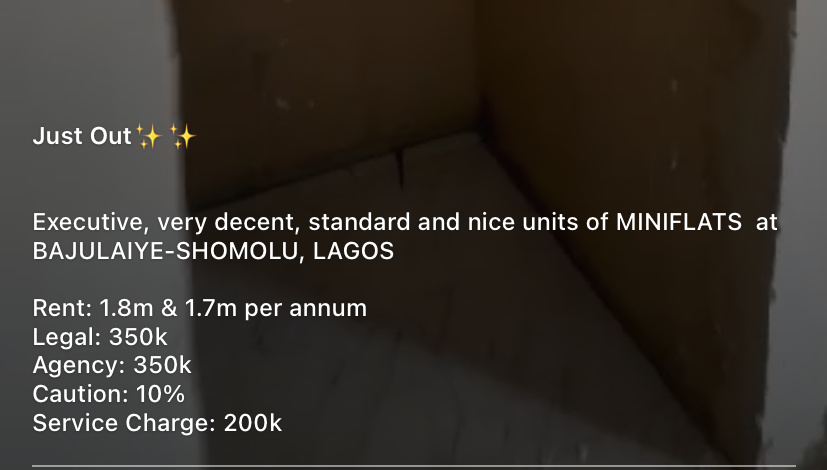
“On multiple occasions, I’ve encountered agents who insisted on a ‘form fee’ before taking me on inspections. More often than not, these inspections led to apartments that were far from the ideal they’d advertised—many were rundown and in a condition barely suitable for habitation, as badly dilapidated as a lizard’s basement,” he told The Guardian. Once, he came across a self-contained room with rent of N500,000 per annum, but was billed N800,000 as a total package.
Illegal commissions, fees
The existing legal framework for housing in Lagos firmly prohibits estate agents from charging more than 10% of the annual rent as fees.
This is supported by the Lagos State Real Estate Transaction (LASRERA) Law. Section 26 (11) (a-b) of the Lagos State Estate Agency Regulatory Authority Law stipulates that agency fees shall be 10 percent of the total rent collected on rent. Agents, however, flout the provisions of the law by charging 30%, sometimes 50% of rent as fees.
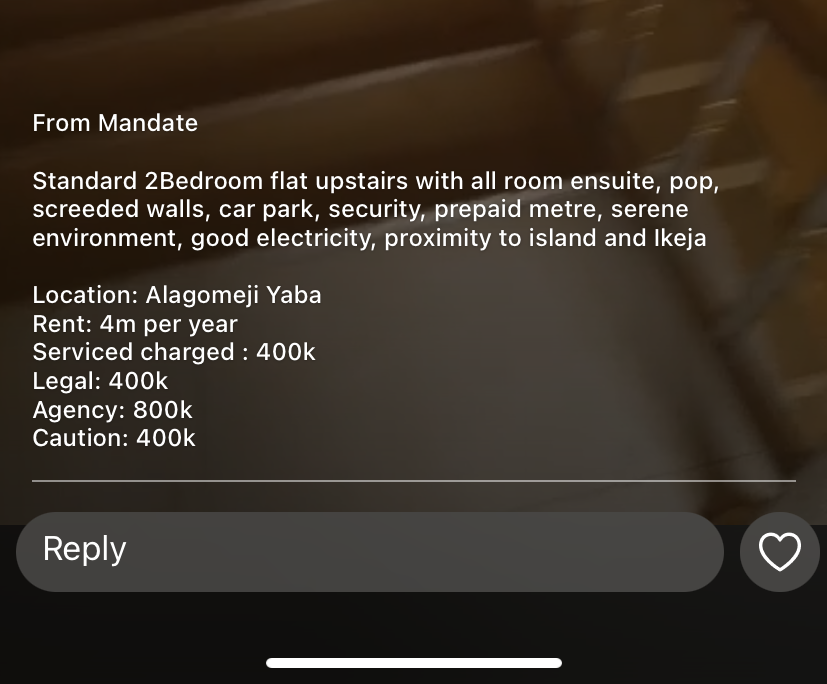
In September, Florence secured a miniflat with a rent of N800,000 per annum, but she paid N1,250,000 as a total package. She told The Guardian that the agent still demanded more money from her.
“The agent still asked for extra because there were so many agents on the property. I realized the agent might know about a house managed by another agent. Whatever you are paying will be shared among them. In cases like this, they increase agent fees, and you will have to add to it.
“Sometimes you have three agents. In our case, the man said we would pay him 100k. We asked why because there was an agent fee, a caution fee, and a legal fee in the breakdown he sent. Eventually, we paid him 50k. We spent N1.3 million in total, and we would have to spend up to N2 million because the house requires renovations,” she added.
A young civil society leader deeply involved in development work and youth rights advocacy, Olasupo Abideen, told The Guardian that the issue of agents charging illegal fees and making rents unaffordable for young people demands a solution from the government and landlords.
“It will take a young person who is earning the current minimum wage two years to afford an apartment of N1 million. As a person who advocates for youth empowerment, it is discouraging for young people to move down to Lagos with the exorbitant charges demanded by agents and expensive house rents. The government needs to pay careful attention to this issue beyond enacting legislation,” said Abideen.
During a stakeholders’ meeting in April, the Commissioner for Housing, Moruf Akinderu-Fatai, and Barakat Odunuga–Bakare, the Special Adviser to the Governor of Lagos State on Housing, advised the leaders of the Nigerian Institution of Estate Surveyors and Valuers (NIESV), Real Estate Developers Association of Nigeria (REDAN), and Association of Estate Agents in Nigeria (AEAN) to caution members to stop charging these illegal fees in the state.
Odunuga–Bakare described the introduction of illegal fees as a harmful practice that affects tenants and puts the integrity of practitioners and property owners at stake.
The Lagos State Government has reiterated the provisions of the law and warned agents against running afoul of the law, yet this harmful practice persists, and many residents, including young people, have to pay for housing out of their noses.
For Abideen, who is also a technology enthusiast, a solution to this lies with technology and requires all hands, including homeowners and the government, to be on deck. He said Lagos can borrow a leaf from the open housing system practiced in the United Kingdom, which allows people to rent homes seamlessly without hidden charges.
“Technology startups need to develop a solution for this by creating platforms where homeowners can post vacant rooms they want to rent out. For example, there is the open rent system in the UK which makes everything seamless. They handle most of these things and don’t collect charges from those home seekers. It makes things extremely easy,” said Abideen.
Comments
This site uses User Verification plugin to reduce spam. See how your comment data is processed.